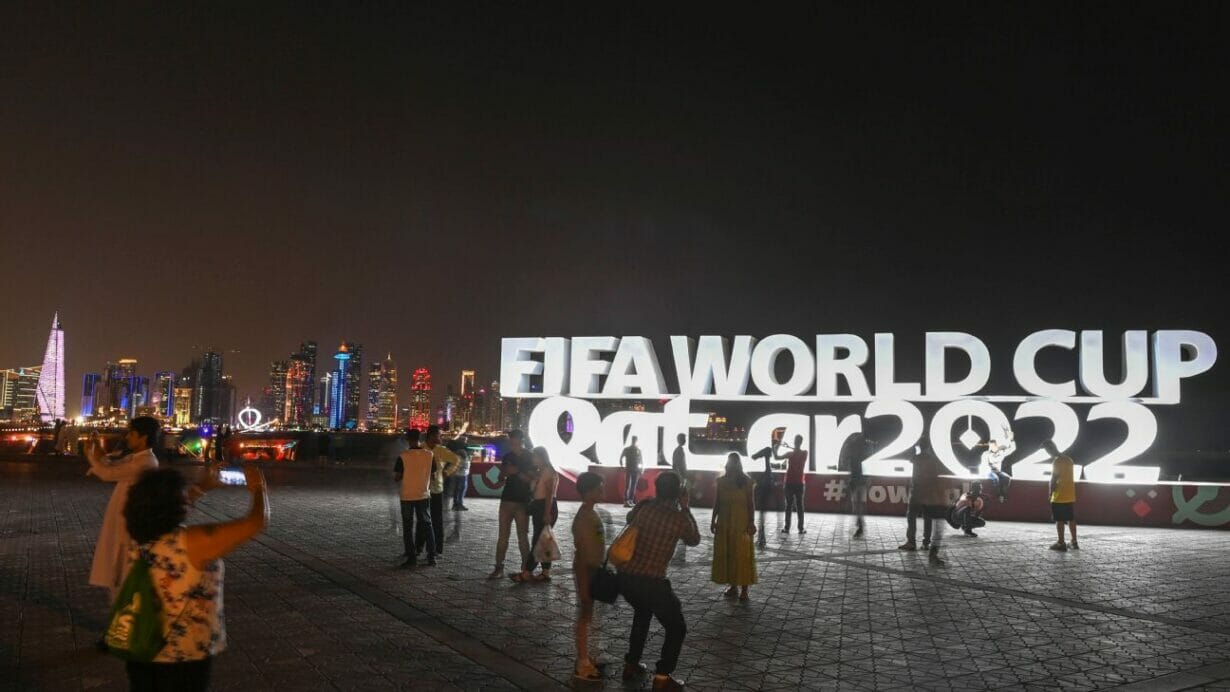


Leading human rights campaigners have accused FIFA of “whitewashing” migrant worker abuses through “sinister” tactics and called for the stronger, more transparent implementation of a compensation fund.
Questions have repeatedly been raised about the treatment of migrant workers in Qatar both before and during the World Cup with the Guardian claiming around 6,500 people had died in the Gulf State due to extreme and substandard working conditions as it prepared to host the tournament.
That figure has been strongly disputed by Qatar’s Supreme Committee with the organisation’s secretary general, Hassan al-Thawadi, last month suggesting the number stood “between 400 and 500.”
– Stream the E60 documentary, “Qatar’s World Cup,” on ESPN+
– Qatar World Cup 2022: Sportswashing, security and soccer
FIFA confirmed that another migrant worked died last week, reportedly while making repairs at a site used as the Saudi Arabia base during the World Cup.
Amid widespread and growing pressure to compensate workers, Qatar setup a Workers’ Support and Insurance Fund in 2018 which it claims has provided more than $350 million to those affected, primarily in tackling an issue with late or non-payment of wages.
FIFA has also announced a Legacy Fund financed by a percentage of commercial revenue generated through the World Cup which includes the creation of a “labour excellence hub” in conjunction with the International Labour Organisation (ILO) designed to help “share best practices in labour matters and support adherence to the United Nations Guiding Principles on Business and Human Rights when hosting FIFA tournaments.”
However, the Migrant Rights Coalition, comprising campaign groups Human Rights Watch, Amnesty International, FairSquare, and Equidem, believe FIFA is still failing to fulfil its human rights responsibilities.
“FIFA’s egregious whitewashing of serious abuses against migrant workers in Qatar is both a global embarrassment and a sinister tactic to escape its human rights responsibility to compensate thousands of workers who faced abuse and the families of those who died to make this World Cup possible,” said Tirana Hassan, acting executive director at Human Rights Watch.
“FIFA continues to cash in on billions of dollars in revenue but refuses to offer a single cent for the families of migrant workers who died or those workers who were cheated out of their wages.”
In a statement released on Monday, the Migrant Rights Coalition claimed that the Workers’ Support and Insurance Fund “is not currently set up to be able to provide compensation on any meaningful scale related to deaths, injuries, and historic wage theft in the decade before it was operationalised” in 2020.
It continued: “Qatari authorities have also failed to provide disaggregated details about the announced $350 million reimbursed to migrant workers for wage theft, despite repeated requests by Human Rights Watch and Amnesty International.
“In addition, research has also shown that victims’ access to existing compensation mechanisms is rife with obstacles, payments are capped, and that it is nearly impossible for workers or families to apply after they have returned to their home countries.”
The coalition also argues that FIFA’s Legacy Fund makes no specific reference to the money being used to compensate migrant workers who suffer abuse and states that the labour excellence hub should contain “access to a remedy” in issues relating to working conditions as it is one of the UN’s Guiding Principles, to which FIFA is publicly committed to.
“World Cup workers and their relatives are contacting us demanding compensation for unpaid wages, recruitment charges, and other harms, including deaths” said Mustafa Qadri, chief executive officer at Equidem.
“Rather than shifting the goal posts, FIFA and Qatar should heed these calls. The tournament has been mired by worker deaths and exploitation and significant restrictions on freedom of expression and solidarity with the LGBTI+ community. This is an opportunity for FIFA and Qatar to end the tournament with a positive legacy for the women and men who have made it possible.”





